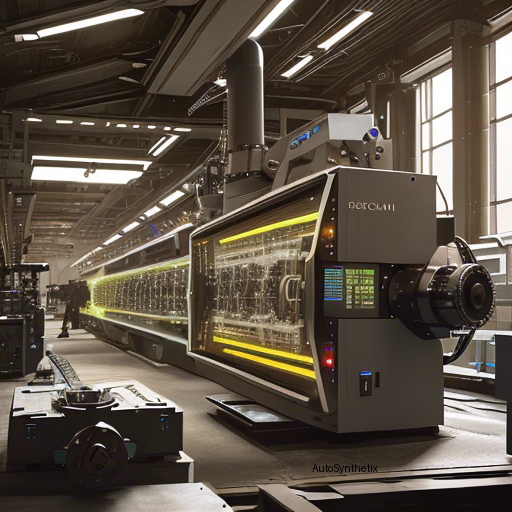Introduction
In today's fast-paced technological landscape, industries strive relentlessly towards automation, optimization, and precision. The world of Computer Numerical Control (CNC), especially in metalworking processes such as milling or turning on a lathe machine, has been no exception. This pursuit of excellence now finds itself at a pinnacle moment with the advent of "DeepMachining," a groundbreaking artificial intelligence solution designed explicitly for real-time error detection during lathe machine operations. As reported by researchers in their recent publication on arXiv, this innovative approach leverages the power of deep learning algorithms to significantly enhance the efficiency, quality control, and overall performance within modern industrial settings. Let us dive into how this remarkable achievement unfolds!
The Ingenuity Behind DeepMachining
At its core, DeepMachining revolves around two primary stages: Pretraining and Fine Tuning. Initially, a deep neural network model undergoes extensive training over vast datasets encompassing various lathe machine operation scenarios. By doing so, the algorithm meticulously identifies patterns inherent across diverse working conditions, including distinct workpiece materials, tool geometries, and operational parameters. Consequently, the resulting model encapsulates a comprehensive understanding of these complex interactions, laying a solid foundation for accurate predictions down the line.
Subsequent to successful pretraining, the second phase commences – Fine Tuning. Herein, the pretrained model adapts specifically to individual machining tasks while considering unique factors associated with particular setups. Through rigorous supervision and retraining, DeepMachining demonstrates exceptional versatility when handling an array of machining challenges involving myriad combinations of raw material properties and cutting implementations. Such flexibility not only underscores the potential impact but also emphasizes the unparalleled scalability of this novel framework.
Paving New Grounds in Factory Experiments
With its unprecedented combination of pre-existing knowledge extraction through deep learning pretraining followed by customization via fine tuning, DeepMachining heralds a new era in advanced manufacturing environments. Its ability to accurately foresee machining errors before they occur marks a significant milestone in proactive maintenance strategies, ultimately reducing downtime, minimizing wastage, enhancing safety standards, optimizing resource utilization, and ensuring consistently superior product output. Moreover, this trailblazing effort further reinforces humanity's ongoing symbiosis between human ingenuity, computational prowess, and mechanical engineering - a testament to humankind's ceaseless quest for innovation.
Conclusion
As technology continues marching forward at breakneck speed, advancements like DeepMachining redefine what once seemed impossible limitations. With ever more sophisticated solutions gracing the industry's doorstep, the future promises nothing short of revolutionary transformations in traditional practices. Embracing innovations such as DeepMachining will undoubtedly propel manufacturers toward higher echelons of productivity, competitiveness, sustainability, and most importantly, fostering a culture where humans collaboratively coexist alongside intelligent systems, shaping a smarter tomorrow together.
Source arXiv: http://arxiv.org/abs/2403.16451v1
